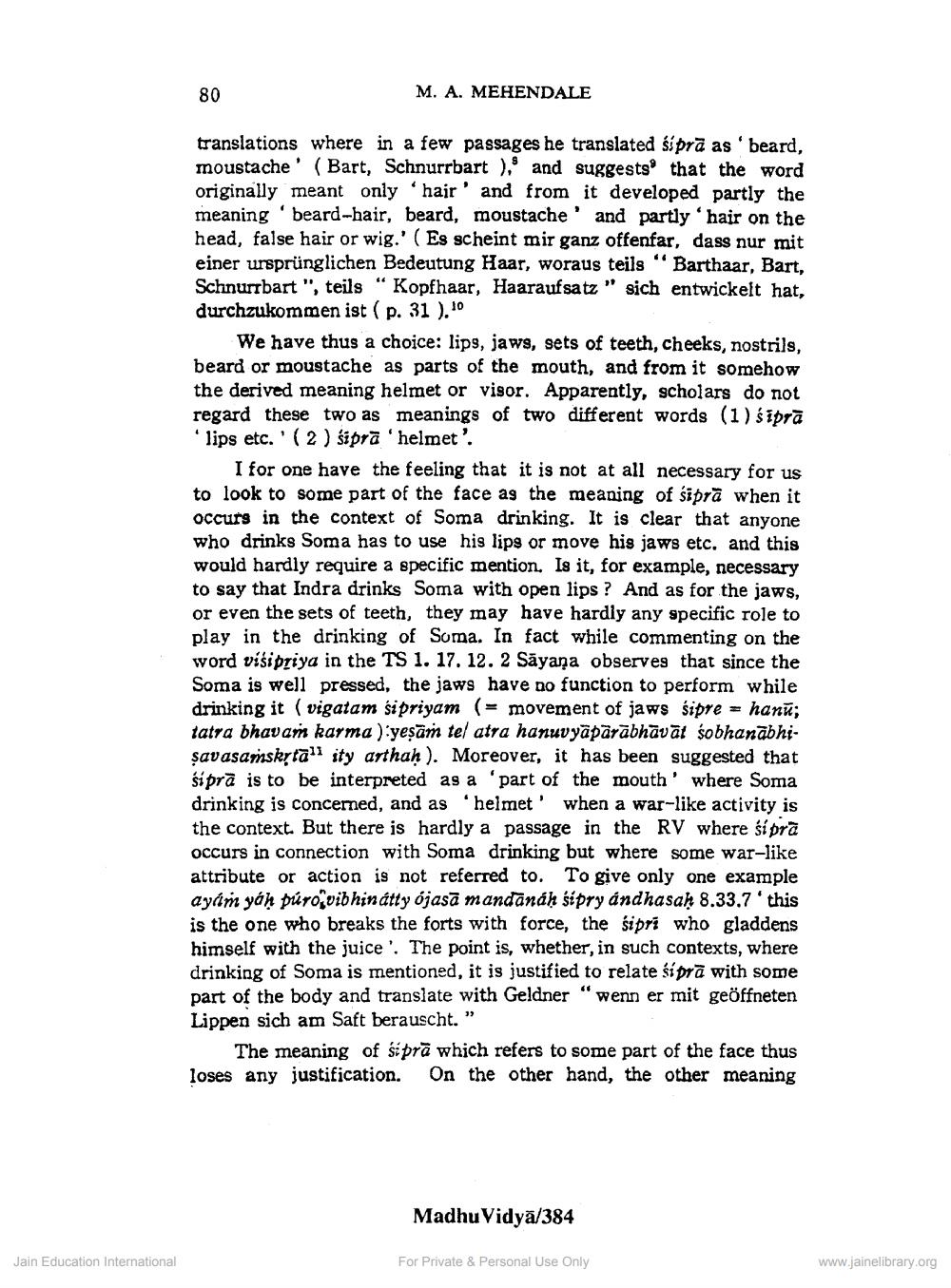________________
80
M. A. MEHENDALE
translations where in a few passages he translated śípra as 'beard, moustache (Bart, Schnurrbart ), and suggests that the word originally meant only 'hair' and from it developed partly the meaning 'beard-hair, beard, moustache and partly hair on the head, false hair or wig.' (Es scheint mir ganz offenfar, dass nur mit einer ursprünglichen Bedeutung Haar, woraus teils “Barthaar, Bart, Schnurrbart ", teils "Kopfhaar, Haaraufsatz" sich entwickelt hat, durchzukommen ist (p. 31 ).
We have thus a choice: lips, jaws, sets of teeth, cheeks, nostrils, beard or moustache as parts of the mouth, and from it somehow the derived meaning helmet or visor. Apparently, scholars do not regard these two as meanings of two different words (1) śiprā lips etc. ' ( 2 ) siprā 'helmet'.
I for one have the feeling that it is not at all necessary for us to look to some part of the face as the meaning of siprā when it occurs in the context of Soma drinking. It is clear that anyone who drinks Soma has to use his lips or move his jaws etc. and this would hardly require a specific mention. Is it, for example, necessary to say that Indra drinks Soma with open lips? And as for the jaws, or even the sets of teeth, they may have hardly any specific role to play in the drinking of Soma. In fact while commenting on the word visi priya in the TS 1. 17. 12. 2 Sāyaṇa observes that since the Soma is well pressed, the jaws have no function to perform while drinking it (vigatam sipriyam (= movement of jaws sipre = hanū; tatra bhavam karma) yeşām tel atra hanuvyāpārābhāvāt šobhanābhişavasamskrtāli ity arthah). Moreover, it has been suggested that siprā is to be interpreted as a part of the mouth' where Soma drinking is concerned, and as 'helmet' when a war-like activity is the context. But there is hardly a passage in the RV where śípra occurs in connection with Soma drinking but where some war-like attribute or action is not referred to. To give only one example ayam yán púro vibhinátty ojasā mandanáh sipry andhasah 8.33.7 ' this is the one who breaks the forts with force, the sipri who gladdens himself with the juice'. The point is, whether, in such contexts, where drinking of Soma is mentioned, it is justified to relate sípra with some part of the body and translate with Geldner "wenn er mit geöffneten Lippen sich am Saft berauscht.”
The meaning of siprā which refers to some part of the face thus loses any justification. On the other hand, the other meaning
Madhu Vidyā/384
Jain Education International
For Private & Personal Use Only
www.jainelibrary.org




